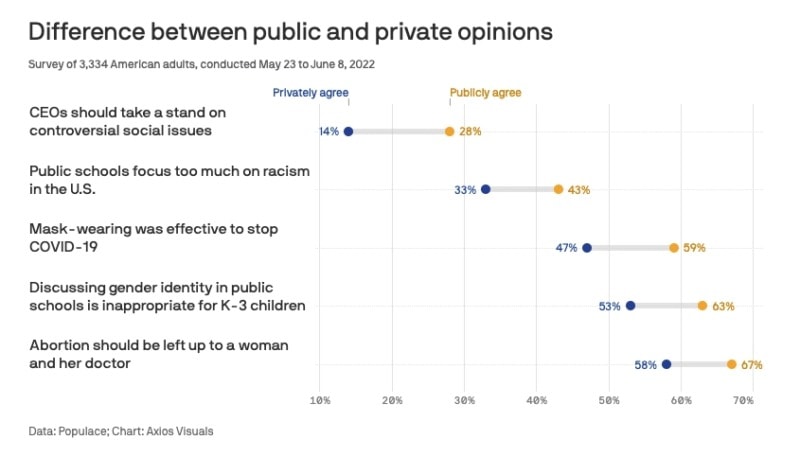
“Self-silencing” — people saying what they think others want to hear rather than what they truly feel — is skewing our understanding of how Americans really feel about abortion, COVID-19 precautions, what children are taught in school and other hot-button issues, a new study finds.
Why it matters: The best predictor of private behavior is private opinion. People’s actual views are far more likely than their stated views to drive consumer and social behavior — and voting.
- “When we’re misreading what we all think, it actually causes false polarization,” said Todd Rose, co-founder and president of Populace, the Massachusetts-based firm that undertook the study. “It actually destroys social trust. And it tends to historically make social progress all but impossible.”
The big picture: People are often more moderate than they’ll readily admit when “being pulled toward a vocal fringe,” whether left or right, Rose said.
- But in some cases, he said, people reshape their privately held views to conform to what they think their group believes, even if that assessment is inaccurate.
- The gap between real and stated views can have a generational […]










If polling corporations are not taking this phenomena into account in their work, then the results are, and have been, trash.